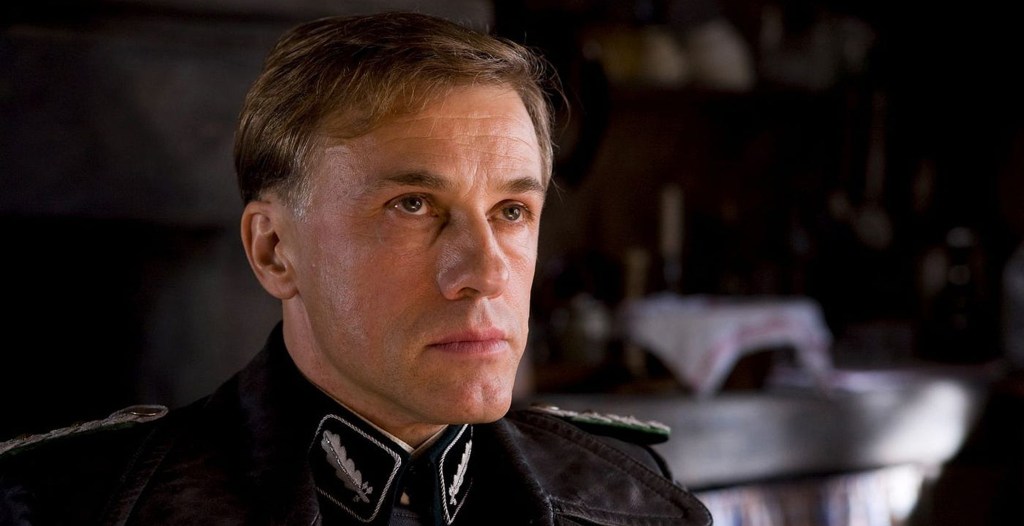
WARNING: There are spoilers ahead for the first three episodes of Star Wars: Andor Season 2! The Star Wars franchise crossed a new line on Tuesday, and this is only the beginning of Andor Season 2. The third episode, “Harvest,” shows Rebels Bix Caleen (Adria Arjona), Brasso (Joplin Sibtain), and Wilmon (Muhannad Bhaier) facing an Imperial raid on their temporary home on Mina-Rau. The callous inspection even leads to a scene where Bix is alone with Imperial lieutenant Krole (Alex Waldmann), who attempts coercion and sexual violence. This is not just creepy — it further equates the Empire of this galaxy with fascist groups closer to home for the audience. In fact, the scene between Bix and Krole seems like a clear allusion to the World War II film Inglourious Basterds.
The violence and corruption aren’t really what makes Bix’s big scene in this episode so unnerving — it’s the self-assured display of power that comes along with it. This is what really draws a connection to the opening scene of Inglourious Basterds, where a Nazi officer named Hans Landa (Christoph Waltz) leads his team of SS soldiers into a civilian family’s home to search for Jewish fugitives. He maintains a polite demeanor, though he helps himself to their hospitality and delivers direct threats with a smile. In the end, he orders the entire family killed even after they comply with his orders.

That’s not far off from what’s happening here — the Imperials are searching for undocumented people working in the agricultural settlements on Mina-Rau, and although Krole is certain that Bix is the fugitive he’s looking for, he comes to her home alone and strolls inside with a casual, mannerly air. He hangs his hat on a hook in the wall and even checks his appearance in her mirror before broaching the subject at hand. He offers to keep Bix’s secret in exchange for sex, and when she refuses, he attempts to assault her anyway.
[RELATED: No One Talks About How Star Wars’ Rogue One Is a Serious Version of Spaceballs]
There are plenty of antagonists on screen with benign smiles and self-assured attitudes, but the connection between Krole and Landa is the tangible power behind them. Both are considered upstanding officers in the ruling regimes of their worlds, and both feel secure enough in those positions to toy with their victims without repercussion. They have virtually unlimited resources to carry out their missions, yet they still take time to gloat and make the confrontations personal, signifying at least some level of enjoyment from this state-sanctioned violence.
Inglourious Parallels

This kind of quiet, self-congratulatory display of power is actually shown several times in both Andor and Inglorious Basterds — which makes sense as both depict fights against fascist systems. Inglorious Basterds has another infamously tense scene where Allied spies go undercover in a bar in German-occupied France, hoping to gather information from the Nazis. The Nazi officers on hand seem to be suspicious early on, yet they continue drinking and toying with the spies until they finally blow their cover in a way that amuses the Nazis.
Perhaps even more relvant, there’s a scene toward the end where the only survivor from the opening scene, Shoshanna (Mélanie Laurent), is cornered by Nazi war hero Fredrick Zoller (Daniel Brühl), who has been flirting with her unsuccessfully throughout the movie. Alone in a dark room, the threat of sexual violence is definitely present here, though perhaps not as overtly as in Andor. It’s notable that Zoller ends up shooting Shoshanna, proving that he was prepared for violence, not just a sexual encounter.
Why Depict This in Star Wars?

A scene like this is shocking for many Star Wars fans, and in general, Andor has pushed the envelope in depicting the dark realities of war and imperialism in a normally family-friendly franchise. Drawing these connections is clearly important to showrunner Tony Gilroy and the others working on Andor, even if it draws some backlash. On the simplest level, it helps to raise the stakes on this show and on the struggle against galactic fascism in general, forcing audiences to project their real-life anxieties onto this fairy tale.
It also seems clear that Gilroy wants his story to inspire some real-life political thought and discussion among fans. In today’s day and age, the term “undocumented workers” has some pretty clear political connotations, and portraying those hunting them down as Nazi-like Imperials sends a pretty clear message. Star Wars could never be called apolitical, as it follows the rise and fall of an authoritarian empire, but it may never have become this overt without creators like Gilroy and his team.
Andor Season 2 continues, with three new episodes every Tuesday on Disney+ for the next three weeks. The series wraps up on May 13th.
The post Star Wars Just Had an Inglorious Basterds Moment in Andor Season 2 appeared first on ComicBook.com.
